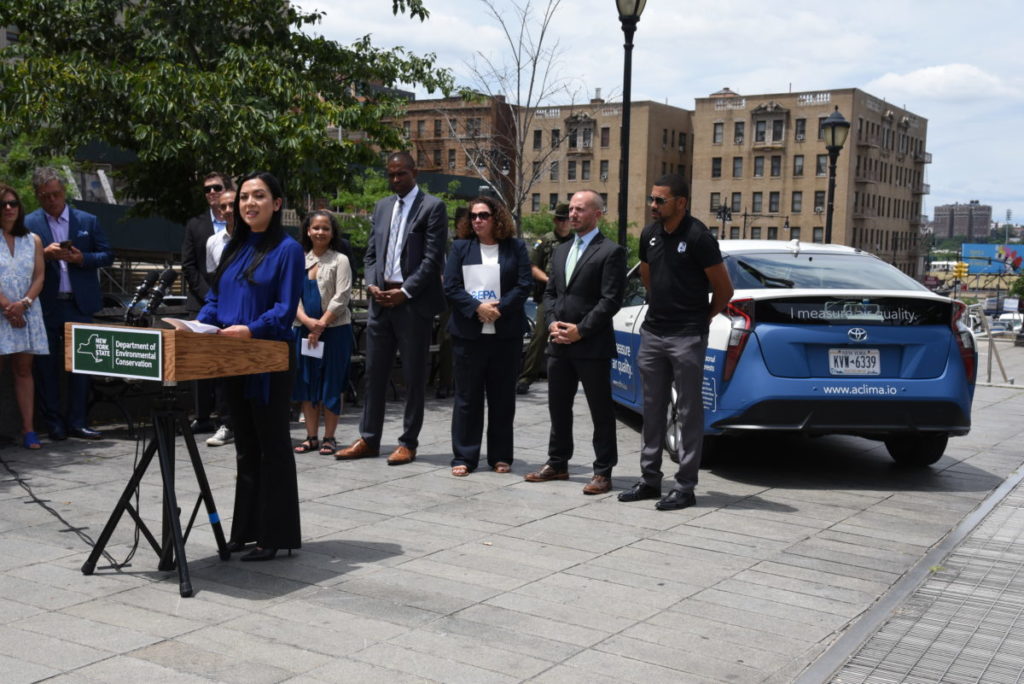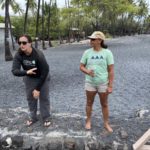
Davida Herzl is bringing her Silicon Valley climate-tech startup to fight dangerous emissions in New York.
Her 160-employee company, Aclima, was recently selected by New York Gov. Kathy Hochul to monitor air pollution and greenhouse gases in 10 low-income areas that the state deems overburdened by environmental pollution.
“It’s a massive undertaking,” Herzl said in an interview. “Nothing like this has ever happened at this scale before across an entire state.”
Aclima’s specialized sensor technology measures a variety of pollutants, collecting trillions of data points via a fleet of high-tech cars. The information, streamed into the company’s software and then analyzed, will be mapped out and made publicly available online.
The $11 million initiative, $8 million of which is going to Aclima, is already underway in areas including the Bronx and Buffalo, and six more communities will start monitoring in the fall.
In announcing the effort, New York’s governor called it “historic” and a step toward addressing air quality issues that impact vulnerable communities. “As someone who grew up in the shadow of a steel plant that contributed to orange skies and a polluted Lake Erie, I know firsthand the urgency of our fight against air pollution and climate change,” Hochul said.
Herzl and her team, who first put this kind of mapping program into action in the Bay Area, aim to help shape local climate action plans. “It’s not just measurement for measurement’s sake, but to then target solutions,” she said.
The daughter of small business owners from Southern California, Herzl started Aclima 12 years ago and closed a $40 million Series B funding round in 2020. She has a degree from San Diego School of Law, which she attended to understand “how the rules of dealing with climate and emissions and environmental issues were written.”
That may be even more important as lawmakers in every branch of government work to dismantle environmental protections. The Supreme Court last month voted to strip the Environmental Protection Agency’s ability to regulate carbon emissions from power plants. In the Senate, West Virginia Democrat Joe Manchin last week torpedoed President Biden’s climate package.
“We’re going to be very dependent on local and state governments taking big, bold leadership on climate,” said Herzl. “Look at the mortality impacts of the heat waves in Europe. It’s not as if it’s a crisis that is far off in the future.”
Rather than give in to hopelessness, Herzl wants to help reframe the narrative around the climate crisis, positioning initiatives like hers as connected to economic growth.
“This isn’t about telling you that climate action is about all the things you can’t have,” she said. “Climate action can actually create a source of new jobs,” especially in underserved communities.
Still, she added, the clock is ticking to mitigate the damage that has been wrought.
“The most frustrating aspect of the climate conversation for me is that we’re talking about it as if it only impacted polar bears and glaciers,” she said. “As profound as those losses are, we should think, ‘Wait, those same emissions that are changing the planet, they go straight back into our lungs and they’re affecting us, today, right now.'”
She hopes the New York initiative and others like it will show people that, even though data is abstract, they can see in hyperlocal fashion exactly where and how they are being affected by pollutants.
“Data actually helps paint that story and make it much more transparent,” Herzl said. “They’re not just these invisible pollutants that end up in the atmosphere. They’re having an impact on you and your family right now and your community right now.”




